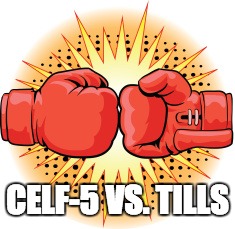 On a daily basis I receive emails and messages from concerned parents and professionals, which read along these lines: “My child/student has been diagnosed with: dyslexia, ADHD, APD etc., s/he has been receiving speech, OT, vision, biofeedback, music therapies, etc. but nothing seems to be working.”
On a daily basis I receive emails and messages from concerned parents and professionals, which read along these lines: “My child/student has been diagnosed with: dyslexia, ADHD, APD etc., s/he has been receiving speech, OT, vision, biofeedback, music therapies, etc. but nothing seems to be working.”
Up until now, I have been providing individualized responses to such queries, however, given the unnerving similarity of all the received messages, today I decided to write this post, so other individuals with similar concerns can see my response.
 Let’s start from the beginning. The very first question I ask is, “When did the child’s difficulties first began and how did they manifest (symptoms)?” In half the cases it will be reported that the difficulties began during early elementary years, and were characterized by slow and halting reading gains as well as poor academic performance. In the rest of these cases, parents will readily admit that the problems had begun in early childhood, and were characterized by uneven and delayed/disordered language milestones.
Let’s start from the beginning. The very first question I ask is, “When did the child’s difficulties first began and how did they manifest (symptoms)?” In half the cases it will be reported that the difficulties began during early elementary years, and were characterized by slow and halting reading gains as well as poor academic performance. In the rest of these cases, parents will readily admit that the problems had begun in early childhood, and were characterized by uneven and delayed/disordered language milestones.
Here, many of you might think, “Well, what’s the problem? If a child has language difficulties, they need to be assessed and a treatment plan needs to be formed in order to best help the child.” Unfortunately, this seemingly simple plan of action is in actuality fraught with numerous barriers and stumbling blocks. Depending on which professionals the parents may encounter first (e.g., pediatrician, neurologist, private SLP, Child Study Team members, etc.), the child’s access to appropriate therapies may be dramatically affected by the knowledge and skills of those professionals. While overt language deficits are often easy to recognize, subtle language and literacy deficits may often be overlooked, dismissed, or misdiagnosed.
To illustrate, if a professional does not possess a solid knowledge that all academically based difficulties (including those pertaining to reading) are language based then a referral to a speech-language pathologist (SLP) will not be made. If a professional has been bombarded by ads for questionable diagnoses and treatments (e.g., APD, biofeedback, etc.) then the recommendation to seek out those diagnostic and treatment options will be made. But even if miraculously it is recognized that the child’s difficulty is due to language deficits, unfortunately, targeted assessment and treatment recommendations are still not guaranteed. That is because depending on how carefully the SLP had prepared for testing (asked parents and the relevant professionals to fill out deficits checklist/s, reviewed previous reports, obtained a summary of the child’s most pressing language and literacy deficits, etc.), the assessment may not uncover the child’s deficit areas.
One of the reasons why assessments need to be highly targeted is because children with language and learning needs are a highly heterogeneous population. The deficits they display are highly diverse in nature and cannot always be picked up by standardized tests. Furthermore, not all standardized tests by far are alike in psychometric properties, and all static tests possess various limitations. Consequently, all need to be supplemented by a variety of clinical assessment procedures in order to fully assess the child’s areas of difficulty.
By now some of you may be asking yourselves, “Wait a second, didn’t she say that one of the received therapies, is speech? Surely, that should improve abilities even if other therapies are not so useful?” And, once again, the answer is, it’s complicated! Yes, theoretically speaking provision of language therapy services should improve functioning.
But there is a caveat. Only if that therapy is actually addressing relevant goals. If the language therapy services are being provided in an undifferentiated manner, very little, if any, improvement will actually take place. And the latter is unfortunately not uncommon. As someone, who routinely performs comprehensive language and literacy evaluations and reviews dozens of assessment and treatment reports on a weekly basis, I have seen some very unfortunate treatment trend patterns. Namely, children being provided language therapy without administering an appropriate assessment first, therapists addressing ineffective therapy goals (e.g. following directions, sequencing, etc.), children working on the same treatment goals for years without any improvement in functioning, etc.
 So now that I had an opportunity to outline some basic barriers to effective remediation (e.g., lack of recognition of a problem, referrals to relevant professionals, appropriate testing, poor treatment formulation practices, etc.), let us focus on solutions to the above problems.
So now that I had an opportunity to outline some basic barriers to effective remediation (e.g., lack of recognition of a problem, referrals to relevant professionals, appropriate testing, poor treatment formulation practices, etc.), let us focus on solutions to the above problems.
Here are some suggestions to ensure the child is receiving appropriate treatment/s.
For starters, it is important to get as close to the root cause of the problem as possible. Child is displaying behavioral manifestations? A referral to relevant professionals (psychiatrists, psychologists) is strongly needed, but so is a recognition that there is hugely significant comorbidity between psychiatric diagnoses (ADHD, ODD, RAD, anxiety, depression, etc.) and language deficits. As such, all children with psychiatric difficulties as well as emotional and behavioral disturbances require language and literacy testing in order to determine the extent to which their psychiatric impairment is further impacted by an undiagnosed language disorder. It is also important to keep in mind that unless the child possesses the language abilities to discuss their feelings, ideas, thoughts as well as to engage in verbal reasoning tasks relevant to their psychotherapeutic treatment, no progress will be made in the treatment of their psychiatric disorder without language remediation.
Child is presenting with poor reading abilities and “dyslexia” symptomology? Make sure that there are no undiagnosed language difficulties further impacting the child’s acquisition of literacy skills. Do not initiate any popular reading intervention programs (e.g., OG, Wilson, Barton, Lindamood-Bell, etc.) without a comprehensive language and literacy assessment which details ALL of the child’s difficulties in the areas of language and reading. Without this, children can end up receiving undifferentiated reading instruction for years without any tangible improvements in the areas of reading.
Child presents with “auditory processing deficits”? An “Auditory Processing Disorder” (“APD”) is suspected? Here’s the problem! Even after the APD diagnosis is made, the audiologist will still refer the child for treatment to a speech-language pathologist. Of course, before any treatment is initiated, the SLPs will still need to perform their own comprehensive assessments to determine where the true deficits lie. Furthermore, please be aware that given the significant controversy surrounding the standalone validity of the APD diagnosis, questionable recommendations may be made pertaining to the child’s care (e.g., use of questionable computer programs, use of specific auditory interventions, etc.). This may, in turn, delay the receipt of appropriate therapy (targeted language and literacy intervention) and will result in great harm – a loss of therapy time, not to mention, money.
Did a professional recommend a particular type of questionable intervention (e.g., vision therapy, biofeedback, etc.), because “it wouldn’t hurt to try it”? Before you embark down that “rabbit hole”, research the legitimacy of the recommended approaches. While the referrer may have only the best intentions, the treatment may completely lack legitimacy. There are numerous companies offering pseudoscientific treatments, promising a veritable panacea for all sorts of difficulties ranging from dyslexia and ADHD, to language disorders and APD. Unfortunately, even a cursory overview of available evidence into such ‘treatment approaches’ reveals that they lack effectiveness and tend to heavily rely on video testimonials essentially reporting the placebo effect or a regression to the mean. Coupled with the confirmation bias (parent is aware that child is undergoing treatment and therefore believes/convinces self that therapy is effective), this will result in a significant amount of time and money wasted.
So if your child is receiving all sorts of treatments and nothing seems to be working, ask yourself the following questions.
- What is the basis for my child’s problem? If it’s in any way related to listening, speaking, reading or writing, then a comprehensive assessment for a qualified speech-language pathologist is warranted.
- Do I feel like a speech-language assessment my child received was adequate to reveal all of their deficits?
- Did the professional put forth a step by step remediation plan for my child targeting areas of uncovered difficulties?
- Does the professional have objective measures to determine my child’s progress?
- Is the professional recommending certain programs due to their investment in, or past experience with these programs vs. these being a good fit for my child?
- Does a professional have a clear rationale for using a specific program/approach to remediate my child’s difficulties?
- Is there any evidence (online in reputable articles on reputable websites) that the specific program/approach being used has questionable efficacy?
- Am I told information that makes sense? (e.g., promises that a highly specific intervention such as biofeedback, isolated auditory training, music therapy, etc., will result in better language and academic outcomes.)
If any answers to those questions make you uncomfortable, then it’s important to seriously consider the fact that your child may not be receiving appropriate interventions due to which lack of progress continues to persist. As such, a targeted reassessment of their language and literacy abilities will be necessary in order to determine the appropriateness of the current treatment options, in order to facilitate meaningful treatment gains for the purpose of improving their social and academic outcomes.
Helpful Related Posts:
- Alternative Therapies, Herbs, Pills, and Snake Oils or “What’s the Harm in That?”
- Special Education Disputes and Comprehensive Language Testing: What Parents, Attorneys, and Advocates Need to Know
- What Makes an Independent Speech-Language-Literacy Evaluation a GOOD Evaluation?
- What Research Shows About the Functional Relevance of Standardized Language Tests
- How Early can “Dyslexia” be Diagnosed in Children?
- Components of Comprehensive Dyslexia Testing: Part I- Introduction and Language Testing
- Part II: Components of Comprehensive Dyslexia Testing – Phonological Awareness and Word Fluency Assessment
- Part III: Components of Comprehensive Dyslexia Testing – Reading Fluency and Reading Comprehension
- Part IV: Components of Comprehensive Dyslexia Testing – Writing and Spelling
- Review of the Test of Integrated Language and Literacy (TILLS)
- Why (C) APD Diagnosis is NOT Valid!
- What Are Speech Pathologists To Do If the (C)APD Diagnosis is NOT Valid?
- Why Are My Child’s Test Scores Dropping?
- It’s All Due to …Language: How Subtle Symptoms Can Cause Serious Academic Deficits
- Dear SLPs, Try Asking This Instead
- Dear Reading Specialist, May I Ask You a Few Questions?
- Help, My Student has a Huge Score Discrepancy Between Tests and I Don’t Know Why?
- Making Our Interventions Count or What’s Research Got To Do With It?
- Do Our Therapy Goals Make Sense or How to Create Functional Language Intervention Targets
[…] areas will result in adverse academic outcomes. Missing deficits in these areas will result in poor intervention gains since the students will not effectively master their therapy […]
You are so right that the type of goals we write and the type of therapy we do is so important!
[…] performance can be affected by impaired intellectual functioning, reduced working memory, and processing abilities, etc., (neuropsychological testing), the vast majority of difficulties exhibited by children in […]